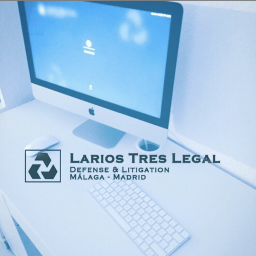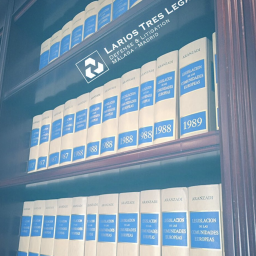Legal interest, default interest and procedural default interest.
Interés
In order for a client to receive (everything) that rightfully belongs to him in the process of claiming a debt, or to demand the fulfilment of a certain contract, it is essential to prepare the extra-judicial claim rigorously from the beginning, always thinking about the eventual (future) legal claim. Because the preliminary claim phase can have a negative effect on the judicial phase, both when it comes to calculating the concepts claimed, as well as on the possibility of recovering the procedural costs (depending on whether good or bad faith is proven on one side or the other ex articles 394 y 395 LEC).
It is therefore not enough to be meticulous when carrying out the technical-legal study of the existing facts and evidence. It is also necessary to delve into each and every one of the applicable aspects and rules, so that we can manage with complete security throughout the process.
In this article, we will try to unveil the most useful basic formulas applicable to guarantee the success of our clients’ claims when they are forced to resort to judicial protection. Interés
We refer to the claim for the interest inherent to the main claim.
The applicable interest (being ancillary in legal claims) sometimes has a high economic impact.This is especially true when the legal proceedings are excessively lengthy. This can generate interesting returns in terms of profitability. Even transforming certain claims into pseudo ‘financial products’ (especially when market rates are very low or negative). Moreover, they avoid (in the event of the debtor’s solvency) the high risks associated with products that offer the same returns on the markets, provided that they are calculated and claimed correctly.
Autor

Fernando Aguilar Vijande Abogado - Attorney
Contact Information+ 34 630849627
fernando.aguilar@lariostreslegal.com
Services Court Law, litigation and arbitration. Transactions and private law Investments and financial markets Banking and mortgage law
How to claim the interest correctly?
First of all, we should know that, within the Spanish legal-financial system, there are a multitude of interest rates.
For illustrative purposes, the most important are (among others):
- Compensatory or default interest (regulated in the event of non-compliance in art.1.100 Cc.).
- The legal interest (published in the BOE every year, it is the one established as subsidiary for when the parties have not agreed a different one ex art.1.108 Cc.)
- Remunerative and/or default interest (applied in financing contracts such as loans or credits).
- Special indemnity interest (applied to incidents covered by insurers, and regulated by Article 20 LCS).
- The procedural default interest (applicable from final judgement to effective compliance regulated in art. 576 LEC).
What are the most important differences between the most important ones for practical purposes?
To begin with, we must understand that default interest has a certain compensatory nature. And it is distinguished from the so-called ‘ remunerativeinterest’ because it is purely lucrative or transactional in nature. The latter normally constitute the consideration agreed in contracts for monetary financial transactions (loans or credits). In other words, they are agreed as the ‘price of the money lent’.
By contrast, default interest serves to compensate the creditor for the damage caused by the debtor who is in arrears with respect to certain amounts which, for whatever reason, constitute a liquid, due and payable amount of money. For example, by having incurred in default (delay) with respect to the fulfilment of a certain obligation. Its legal basis revolves around Article 1.100 C.C. On the other hand, Article 1108 C.C. clarifies that, in the event that the parties have not expressly agreed on any other interest for late payment, the legal interest published at any given time is applied subsidiarily.
How to claim them efficiently and safely?
It is important to acknowledge that the Civil Code itself tells us that a prior requirement – judicial or extrajudicial– is mandatory for the beginning of its effective computation (art.1100 CC).
But, as we have said, not all interest is the object of an indemnity item, sometimes it is considered to be the fruits or yields of a capital.
This would be the common legal interest. That is to say, those which by law belong to the creditor as long as they are claimed at the request of the party (dispositive principle of Art. 19 LEC) in time (no prescription or expiry) and form (as a precautionary measure in the prior extrajudicial injunction and Supplication of the judicial claim).
The justification for the latter is based on a threefold approach according to the applicable case law with regard to the ‘principle of indemnity’:
- On the one hand the presumption of productivity of the capital itself.
- On the other hand, the rules on the full restitution of services rendered in fulfilment of contracts subsequently declared ineffective.
- And finally the interdiction (prohibition) of unjust enrichment or ‘unjust enrichment’.
(*) STS no. 651/2013, of 7 November, and STS no. 655/2007 of 14 June.
Said justification is subtracted from articles 1.295 Cc, first paragraph and 1.303 C.C. And they are in turn reinforced by the general rules on the liquidation of possessory states contained in articles 451- 458 Cc.
But… How useful is this differentiation with regard to a possible claim on our part?
Case law has made it clear on countless occasions that default interest (those agreed in the contract, or the legal ones) must be expressly requested by the parties in the drafting of the claim, in such a way that the Courts cannot order said payment ex officio without incurring in incongruence ‘extra petita’ (as a requirement of the principle of justice rogada contained in art. 216 of the Civil Jurisdiction Act), so that if it does so, said Judgment would be subject to appeal ex art. 218 of the LEC (for exceeding what was requested by the claimant). 216 of the Civil Jurisdiction Act, so that if it does so, said Judgment would be subject to appeal in its event ex art. 218 LEC (for exceeding what was requested by the plaintiff).
On the other hand, certain ‘ex lege’ interests (which arise from the Law itself, such as the procedural default interests of Art. 576 LEC or the special interests of Art. 20 of the Insurance Contract Law), can be established by the Judge even if the party has not requested them in due time and form. As they have been expressly established as such by the legislator, case law interprets them as ‘public order’. Allowing the judge to establish them ‘ex officio’.
But only those specially regulated and which, normally, are intended to make effective the restitutionary consequences of the declaration of ineffectiveness of an executed contract (totally or partially) with a view to preventing the benefits that one of the contracting parties would have received from the other, with an evident unjust enrichment, from remaining for the benefit of the other.
Thus, case law considers the creditor’s express request unnecessary in order to impose the restitution of the services rendered, including their returns, in compliance with the ‘iura novit curia’ principle, and there is no possibility of alleging any inconsistency in this event. And this occurs because it is considered a direct, immediate and inherent consequence of the rule that attributes full retroactivity to the liberatory effect derived from the eventual declaration of ineffectiveness in itself, by the judicial body ex article 1.303 Cc.
Therefore, even when the contracting party had omitted to claim the restitution of the price and, even if he had claimed it, had not made express reference to the interest thereon, the court, through its sentence, will oblige the defendants to pay the legal interest on the capital to be reimbursed, which is always counted from the date on which it was received by the defendants.
In the following, the most important types of interest are described in detail:
Default interest:
As we have said, they are of a compensatory nature (to compensate when, once the creditor has been judicially or extra-judicially requested, the debtor does not comply). They must be requested by the parties. That is to say, the Courts are not subject to pronouncement ‘de oficio’ on them without incurring in incongruence due to ‘extra petita’ (art. 576 LEC, art.1100 and 1008 CC.
*See STS 988/1996, of 18 November and STS 274/2002, 21 March and 741/2008, of 18 July, among others].
Therefore, if it happens that default interest is expressly requested, but the Court, in its Judgment, does not rule either in favour or against, we should consider promoting the correction and complementation of thesentence (art.215.2 LEC) within 5 days for having manifestly omitted pronouncements relating to claims that have been opportunely deduced and substantiated in the process and we would not be in principle incurring in incongruence (in this event ‘infra petita’).
“Ex lege” interests:
The interests of procedural default, those of article 20 of the Insurance Contract Law, and many others regulated especially by special mandatory rules, being a direct and immediate consequence of the rule (by rule of law) have full retroactive effect in the liberatory effect that comes from the simple declaration of ineffectiveness by the court itself in the Judgment.
Therefore, even if they are not expressly requested in the claim by way of a plea in law, they can be applied for retroactively.
However, we always recommend that it is always expressly requested, as it saves us from having to request clarification of the judgement in its event (art.214.2 LEC) for which event we would only have 2 days in which to do so. An appeal can be made as long as the court does not understand that ‘mutatio libelli’ (the mutation or change of the claim) is produced. Once the matter that is going to be the object of the litigation has been established, the plaintiff cannot change it for a different one during the duration of the process (ex articles 412 and 413 LEC).
Interest of the Article 20 LCS:
These are extremely high interests specially regulated in the Insurance Contract Law for the purpose of establishing mechanisms by which insurers are encouraged to comply with their indemnity obligations in due time and form, thus protecting the rights of the insured and beneficiaries.
If the insurer does not comply with these deadlines, interest for late payment is generated and calculated as follows:
- During the first two years: an annual interest equal to the legal interest of the money in force increased by 50% is applied.
- From the third year onwards: The annual interest is set at 20%, unless the result of applying the legal interest rate plus 50% is higher, in which case the latter will be applied.
This interest accrues automatically on a daily basis and, as we have said, without the need for a judicial claim.
Interest for default in the court proceedings:
These are those that operate automatically from the date of a final judgement until full payment is made.
In other words, after having filed the claim in the declaratory phase (payment order, verbal or ordinary proceedings) and the day after a possible final judgement has become final (i.e. after 20 working days in the event that the opposing party has neither appealed nor requested clarification or supplementation), a new type of compensatory interest called ‘court proceedings interest for late payment’ would be calculated.
This interest, regardless of that already accrued from the first claim until the Judgment (previous sections), would be calculated from the day after the Judgment becomes final until effective payment, applying the Legal Interest Rate + 2 points.
Special cases with regard to the law against default on payment:
We should not forget a very interesting tool. We refer to those regulated in the current ‘Law 3/2004, of 29 December against late payment’.
This type of special interest can be applied when in the legal business that gives rise to the main debt all the parties involved are companies and/or professionals (for the purposes of art. 3 LGCYU).
In other words, only to commercial transactions involving the delivery of goods or the provision of services between companies (or between companies and the public administration).
Therefore, it would never apply to business or transactions involving 1 final consumer.
Special interest on late payments – ECB + 8 percentage points.
Default interest is a crucial component of this law.
It is established that (if no specific interest has been agreed in the contract), the (latest) legal interest rate established by the European Central Bank (ECB) plus 8 points is applied. And a fixed amount for collection costs of €40 (or higher if the cost of such a claim is justified) [Article. 8 Late Payment Act].
It is important to acknowledge that this interest rate is the minimum. The parties may agree on a higher one in the contract.
However, in order for the creditor to be able to demand this (special) late payment interest, the following requirements must be met:
- Exceeded Due Date: Payment must be outstanding after the agreed due date.
- Prior claim: The creditor must have made a formal claim for payment in writing.
- Subsidiary time limit: If no specific time limit was agreed, the time limit set out in the law applies. That is, 30 calendar days from the provision of the services claimed (or receipt of the goods).
RECAP – RECOMMENDED PROTOCOL:
To summarise, in the event that we have to claim amounts or obligations with economic impact, we must take into account the following calculations:
1) – From the time a credible claim is filed (by burofax/notarised letter, etc.) until the notification to the opposing party of the condemnatory Judgment, compensation interest is calculated which, if it has not been expressly agreed by the parties, is the legal interest rate in the event of being a consumer. In the event that both parties are companies, they apply either those published by the ECB + 8 points, or those higher if they have been agreed + €40 fixed for ‘collection costs’ or higher if justified.
2) – From the time the sentence becomes final and until the effective payment (extrajudicial or by judicial consignment), the legal interests of each moment would be calculated + 2 percentage points.
We therefore see how, in order to allow our clients to collect every penny. We must, as litigation lawyers, move quickly and comfortably between these concepts that the Legislator makes available to our clients, in order to enforce their rights.
Vía | Código Civil, Noticias Jurídicas. Wikipedia.
Imagen | IA Larios Tres Legal
















